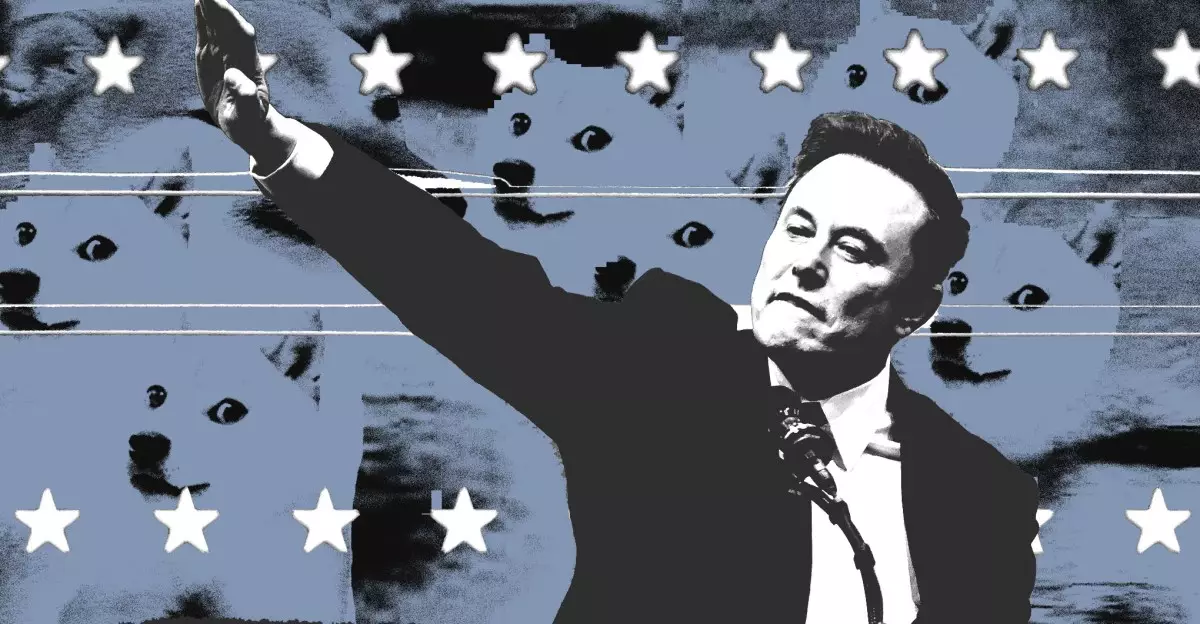In recent weeks, the political landscape in the United States has witnessed unsettling developments, particularly regarding the acceptance of extremist ideologies among young staffers in governmental positions. A notable case involves Marko Elez, a 25-year-old employee of the Department of Government Efficiency (DOGE) who resigned after a social media account linked to him was discovered to promote not only racist rhetoric but also eugenics and the repeal of the Civil Rights Act. This incident emphasizes a broader trend wherein radical ideas are permeating political dialogue, raising alarms among political observers and advocates for a more inclusive society.
Marko Elez’s online activities were brought to light by investigative reports from outlets such as the Wall Street Journal, showcasing troubling posts from his now-deleted X account. Statements that claimed a “eugenic immigration policy” would be advantageous and derogatory comments about Indian H-1B visa holders hinted at a disturbing trend within certain circles of the young conservative movement. The juxtaposition of cutting-edge governmental roles with such extremist views reveals an unsettling reality: influential positions in government are not insulated from radical ideologies. This case serves as a grim reminder of the pervasive nature of white supremacy and racist ideologies that continue to infiltrate modern political spaces.
The DOGE initiative, aimed at optimizing government efficiency under the leadership of Elon Musk and his allies, ostensibly sought to root out wasteful spending and cut down on perceived “woke” agendas. The organization’s alleged goal is to dismantle diversity, equity, and inclusion (DEI) programs across federal departments that are seen as impediments to administrative effectiveness. Yet, the underpinning ideology of Musk’s cadre raises meaningful questions about the motivations and implications of such initiatives. Does the drive for efficiency mask a revival of divisive and dangerous ideologies? The shadow cast by the DOGE initiative suggests that the charming rhetoric of efficiency may conceal ulterior motives that threaten civil rights and multiculturalism.
Elez’s resignation isn’t an isolated incident; instead, it forms part of a broader pattern within the young conservative movement. His case aligns with the experiences of other staffers within the Trump administration who have faced scrutiny for their connections to racist ideologies and extremist groups. The hiring of individuals like Darren Beattie, a former speechwriter known for his ties to white nationalism, signals an unsettling normalization of extremist rhetoric among political figures. Beattie’s remarks, which openly advocate for the supremacy of “competent white men” while dismissing the contributions of women and minorities, illustrate a profound shift in acceptable political discourse.
This trend, referenced by writer John Ganz as the “groyperfication” of the youth conservative movement, highlights an alarming metamorphosis wherein the fringe beliefs of “extremely online” subcultures gain legislative entry. This represents a pivotal moment where radical ideas, which once lingered in the depths of social media echoes, now influence policy and governance directly. Thus, the problem isn’t merely isolated to individuals like Elez, but rather encompasses an ecosystem thriving on divisive rhetoric.
The implications of these events extend beyond the political realm, beckoning individuals and organizations to reassess the fundamental values embedded within the political framework of the country. As we witness a rising acceptance of eugenics and race-based policies, it becomes evident that a cultural reckoning is paramount. It challenges the very fabric of American democracy, predicated on equality and fairness for all.
In light of this disturbing trend, advocacy for a true representation of diverse voices in political conversations becomes increasingly urgent. With contemporary young conservatives like Elez holding key positions, holding them accountable and engaging in discourse that counters extremist narratives is vital.
The incident surrounding Marko Elez serves as a bold wake-up call to the American populace. It forces society to confront the troubling intersection of politics and extremist ideologies, urging stakeholders to fortify democratic principles against the resurgence of hate-driven rhetoric. Promoting a politics grounded in inclusiveness, equity, and understanding is crucial in combating the pervasive influence of radical views, ensuring that the trajectory of political discourse remains anchored in progressive values. Only by actively engaging in these discussions can we hope to create a future that wholly encompasses the principles of equality and justice for all.


Leave a Reply